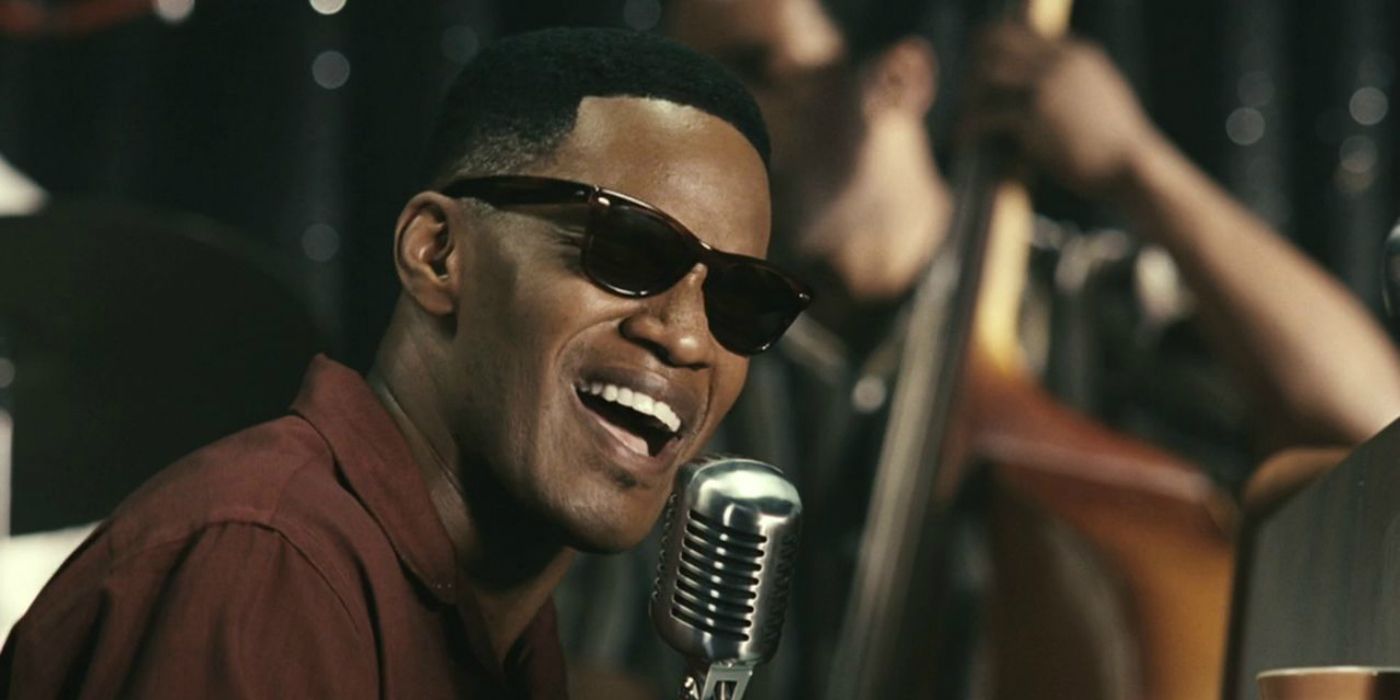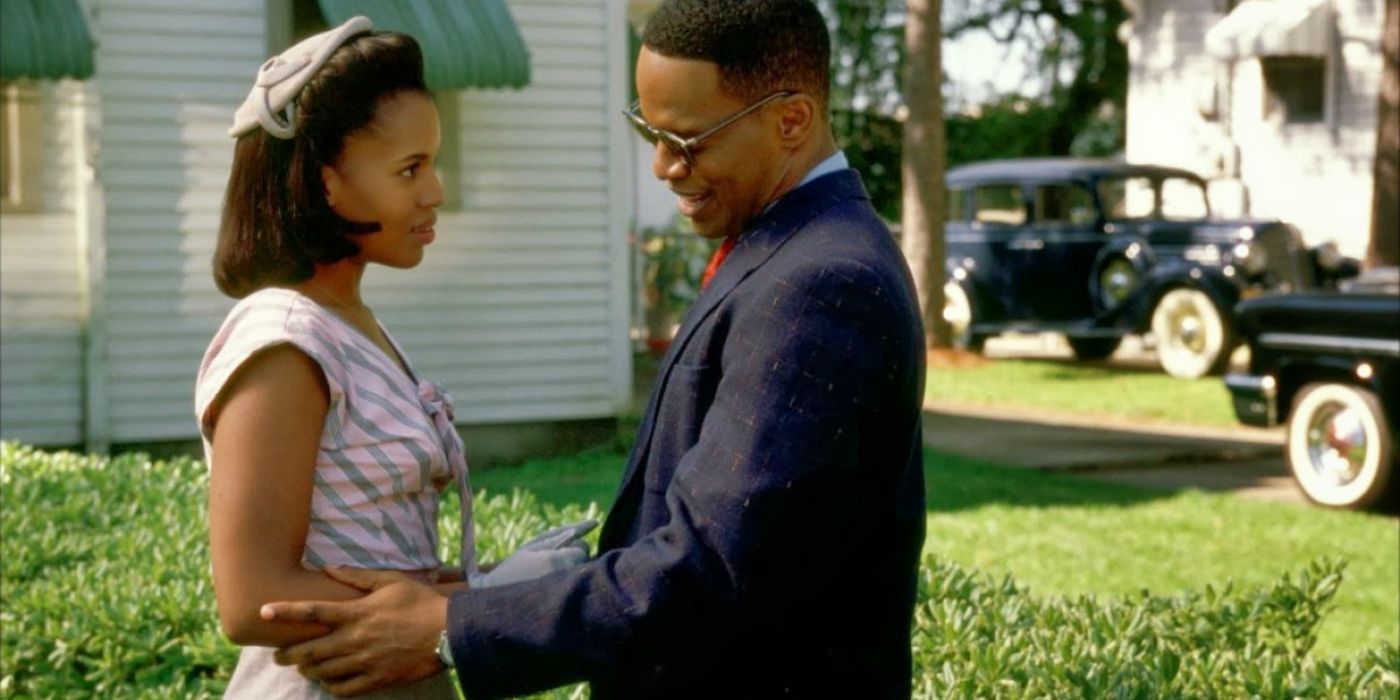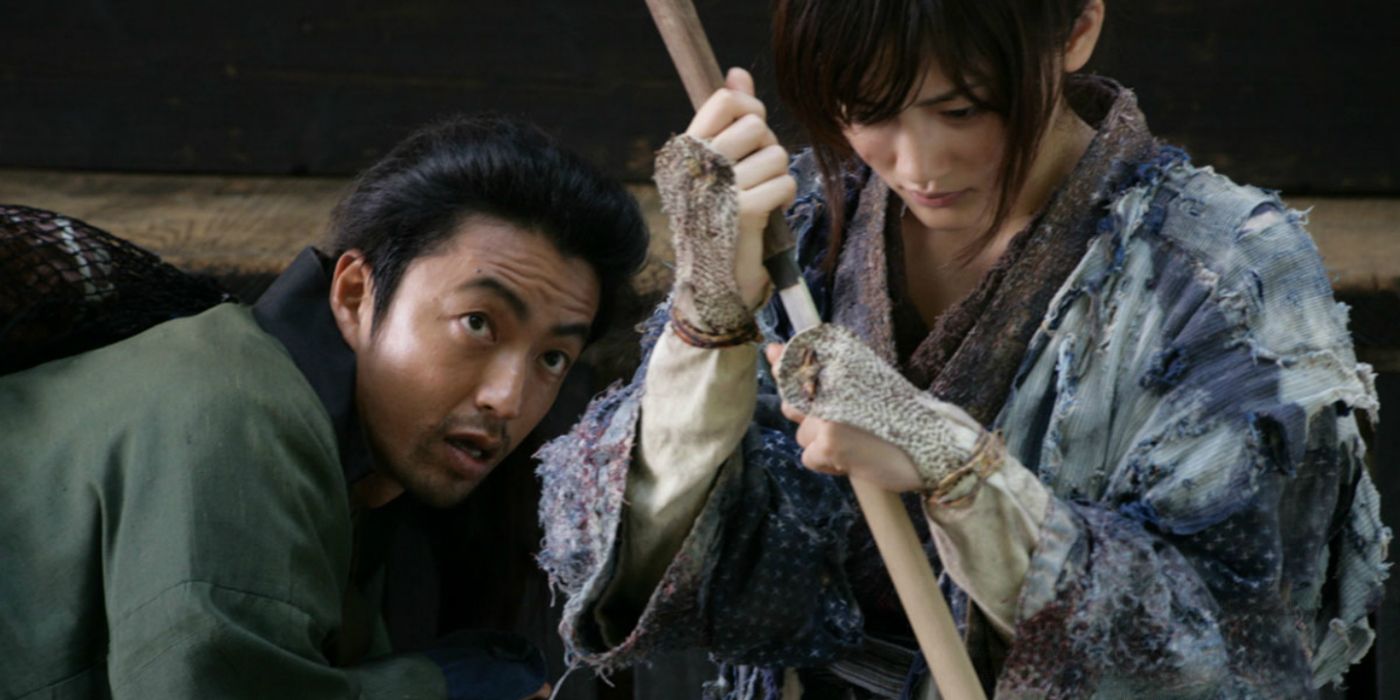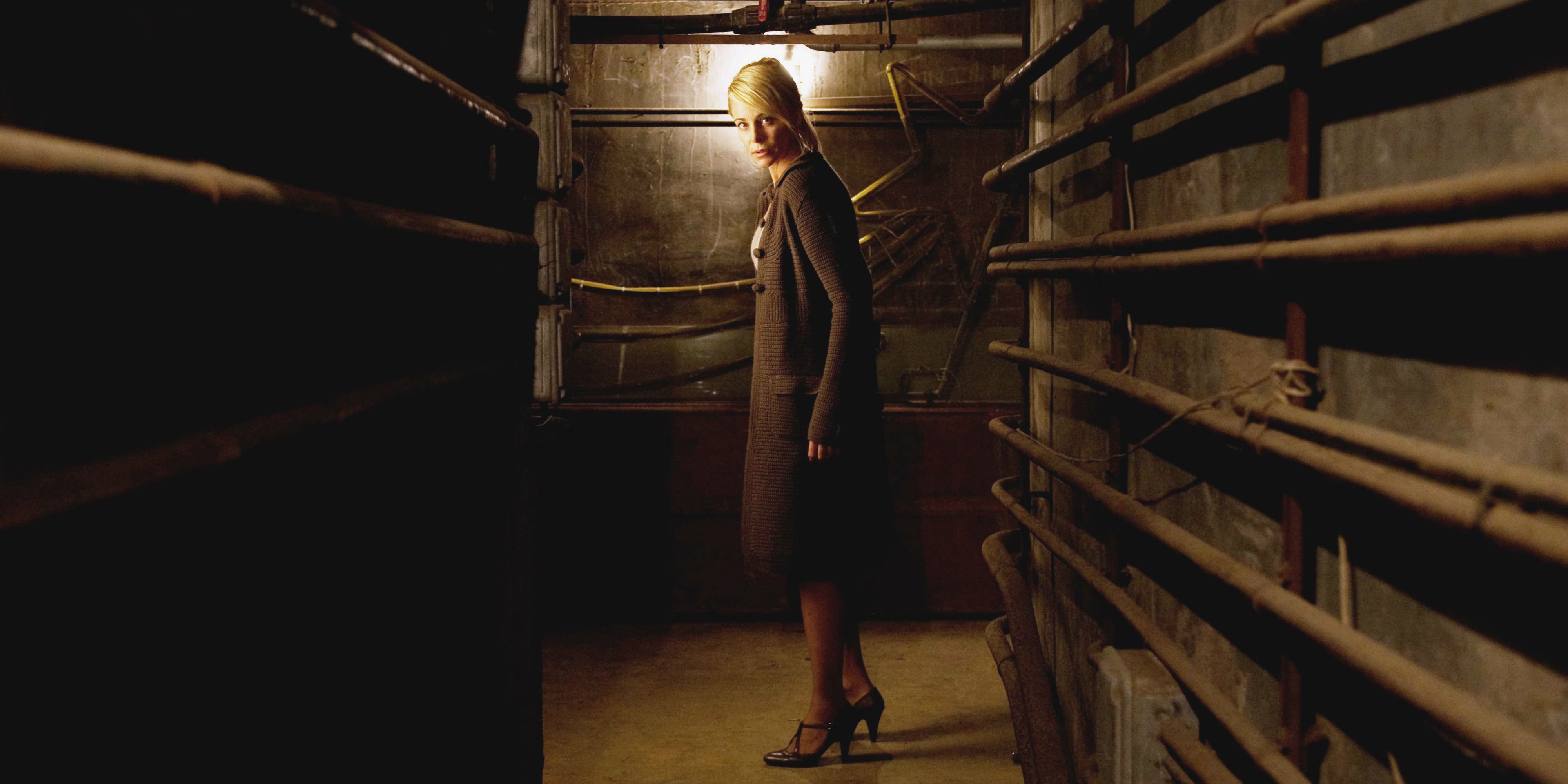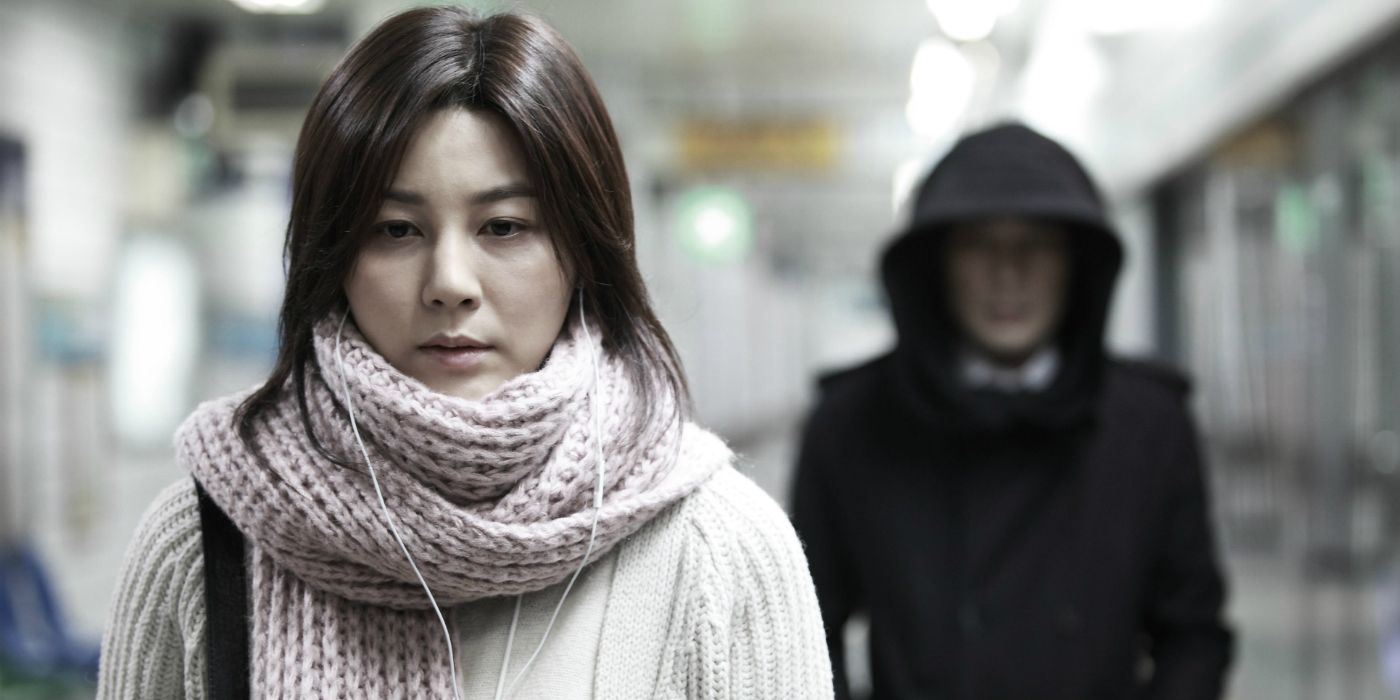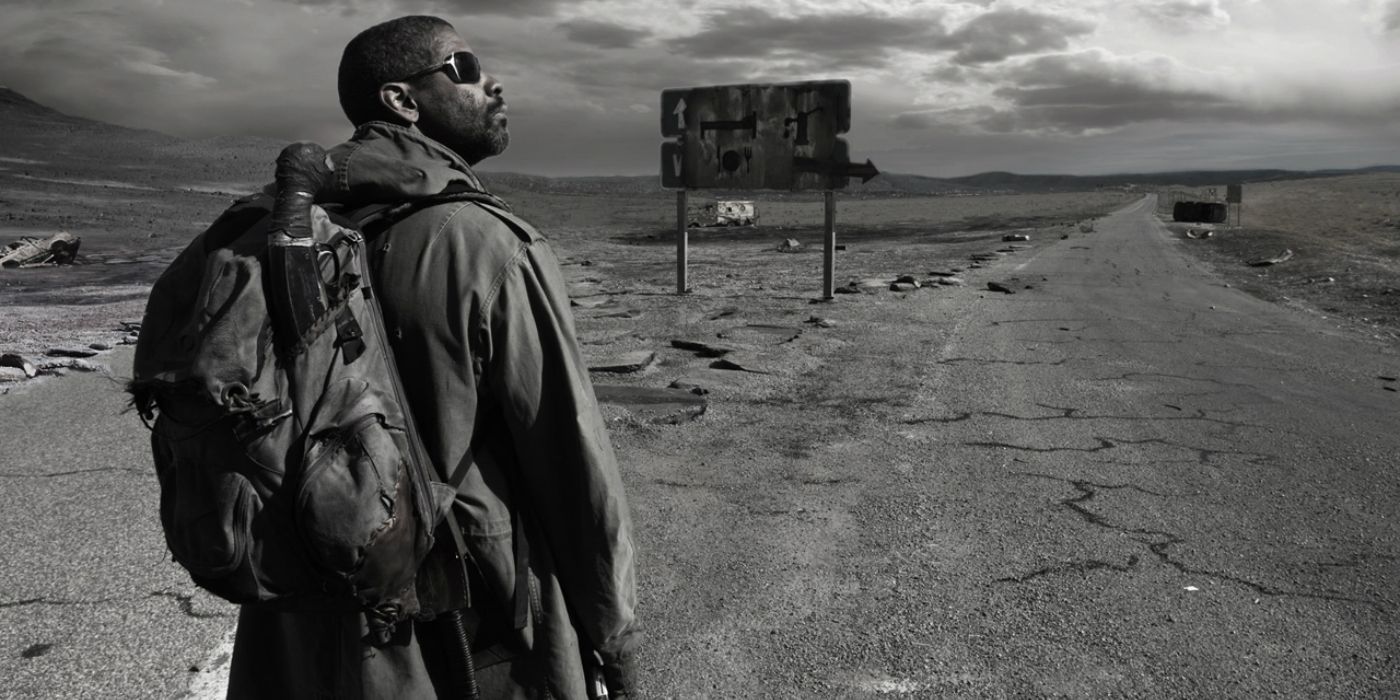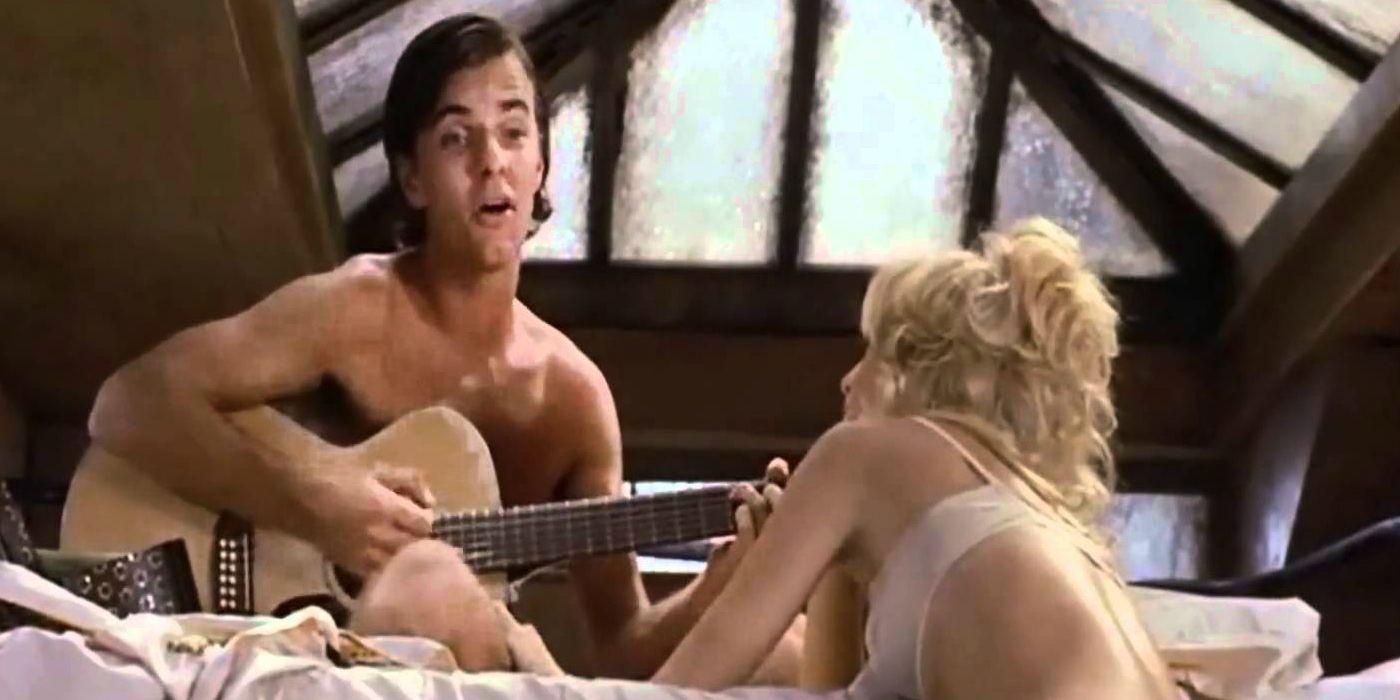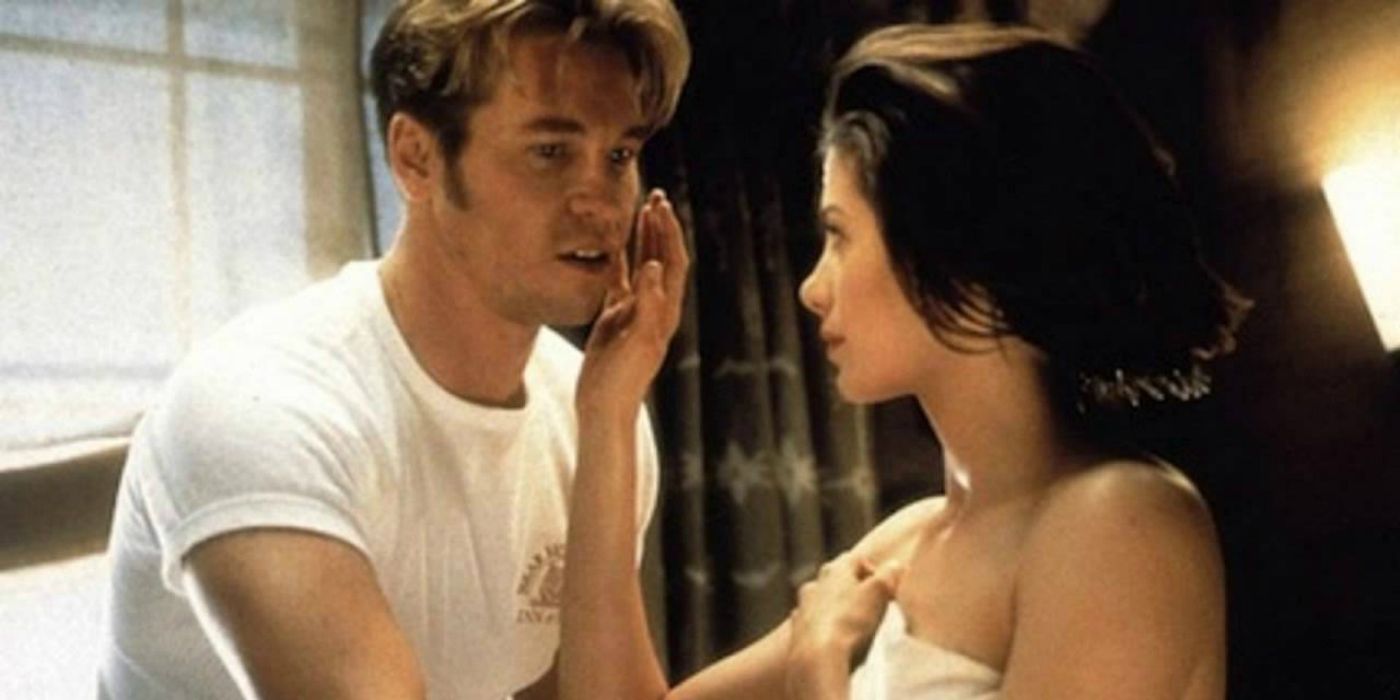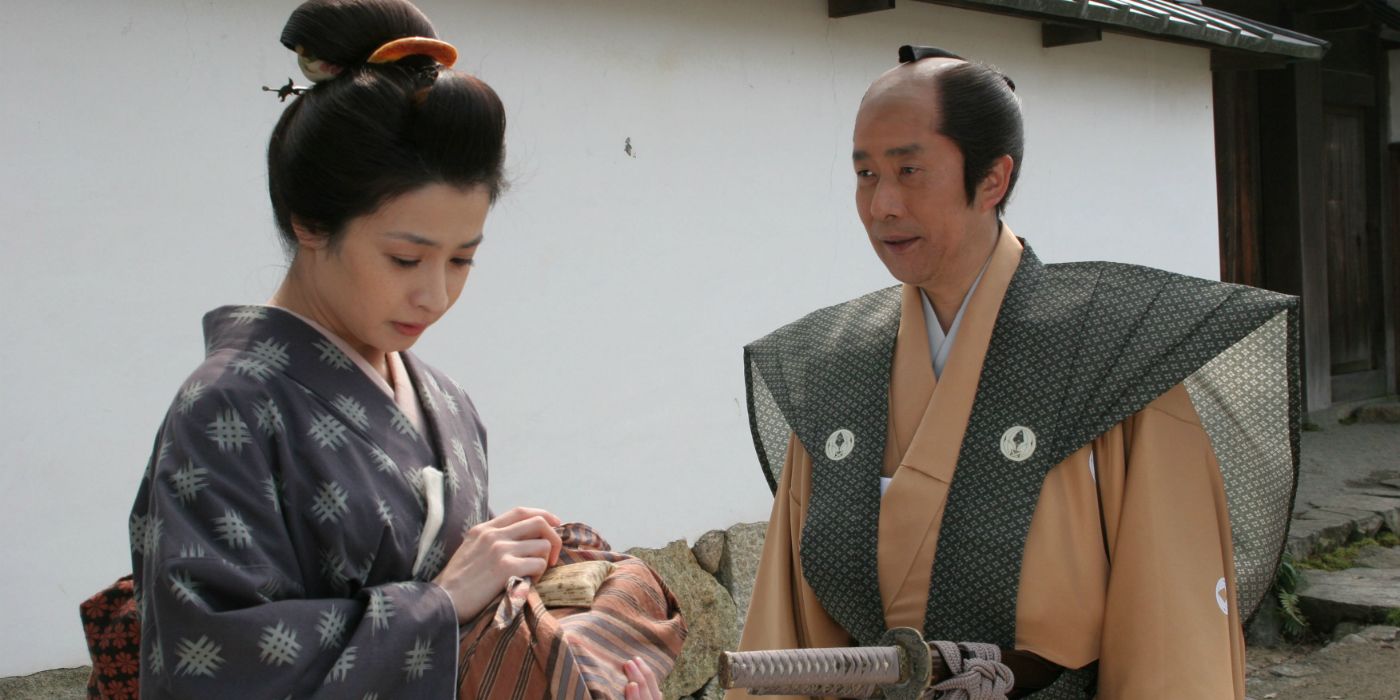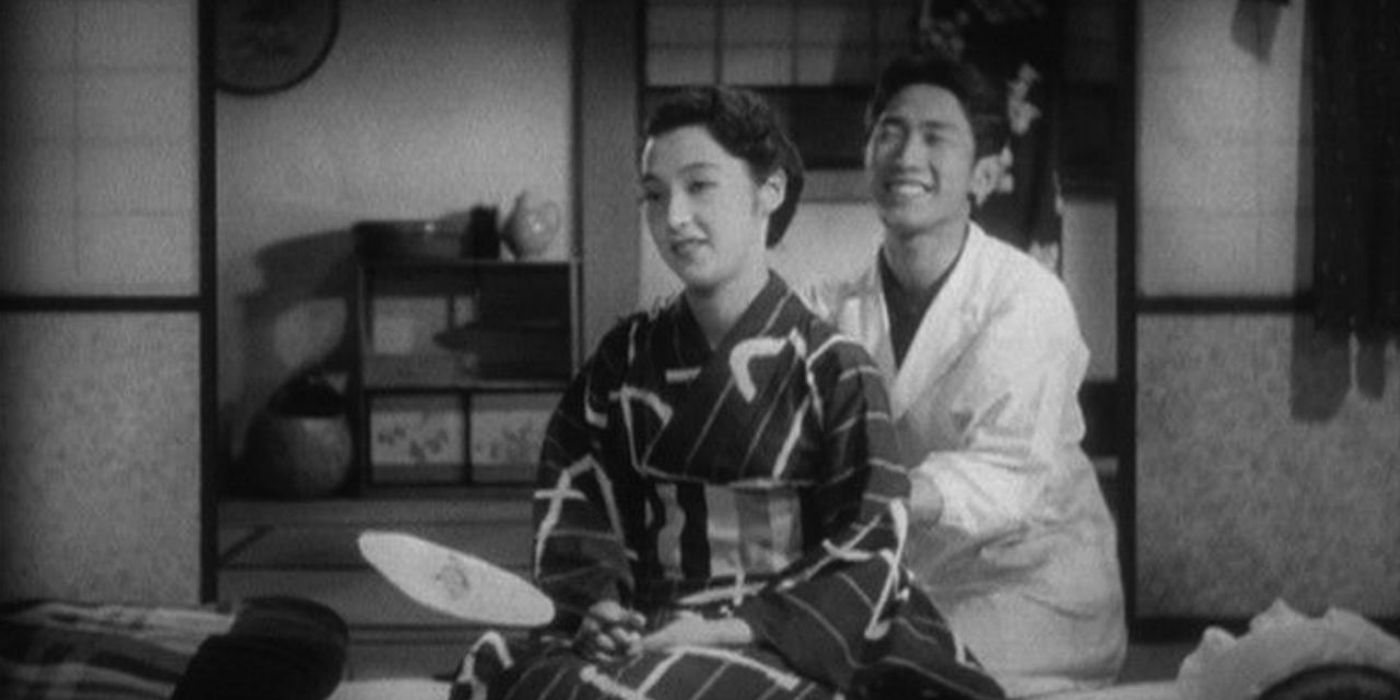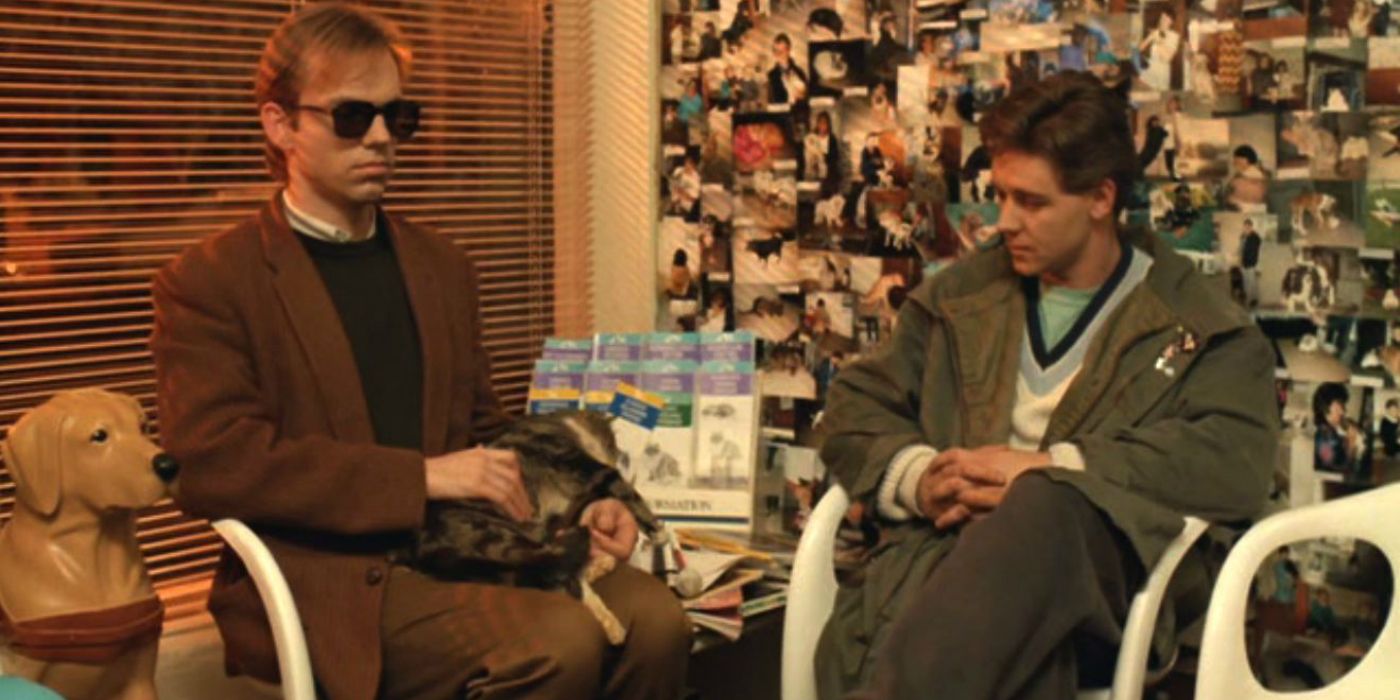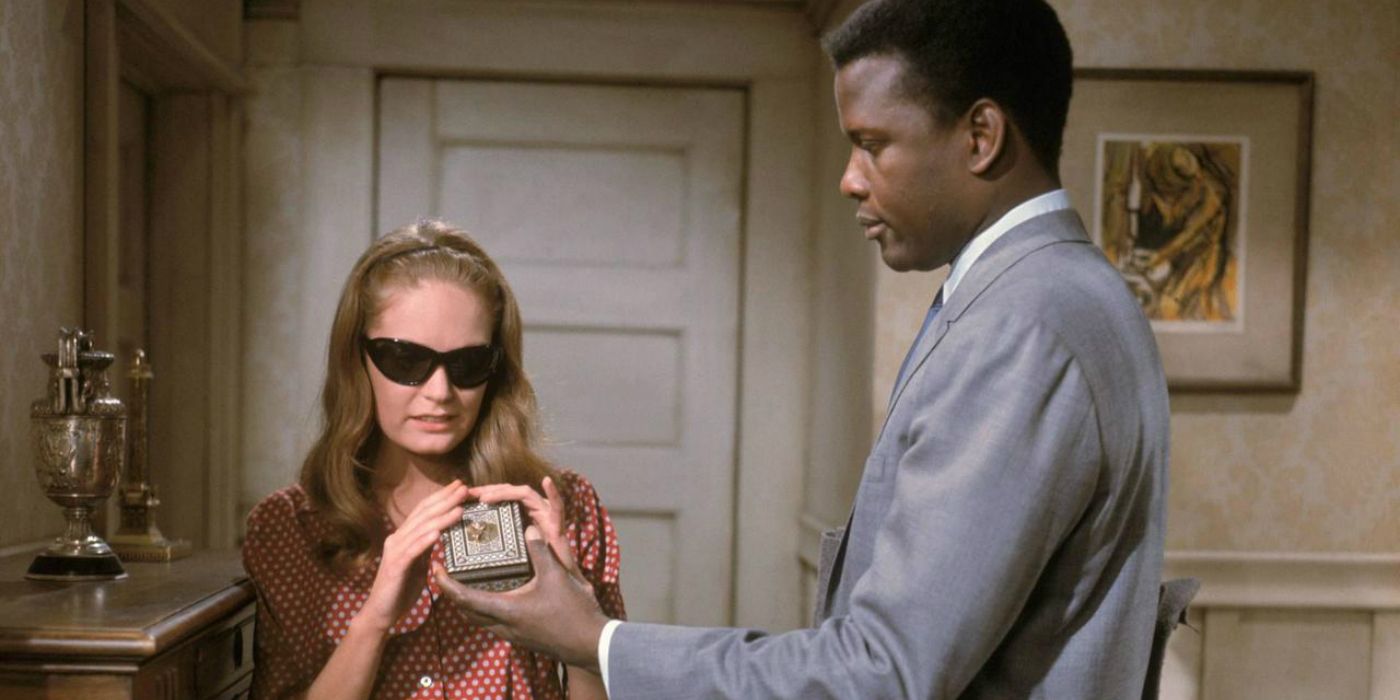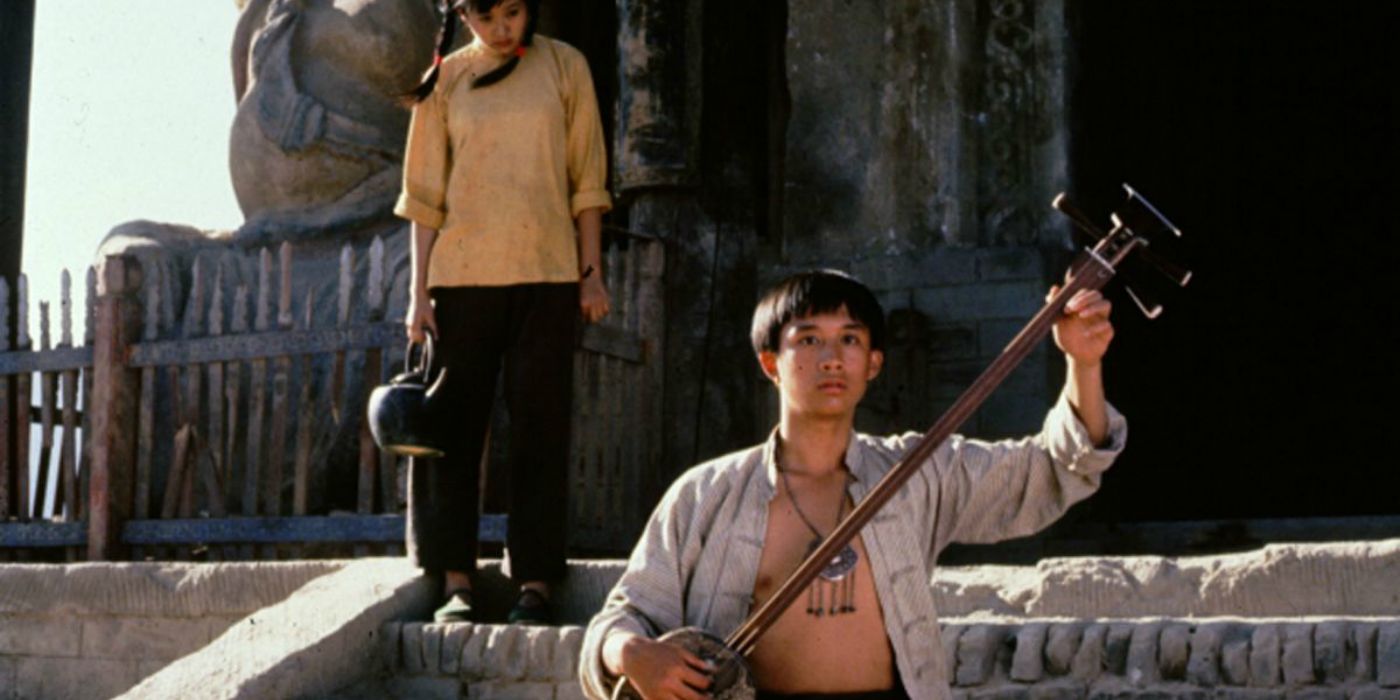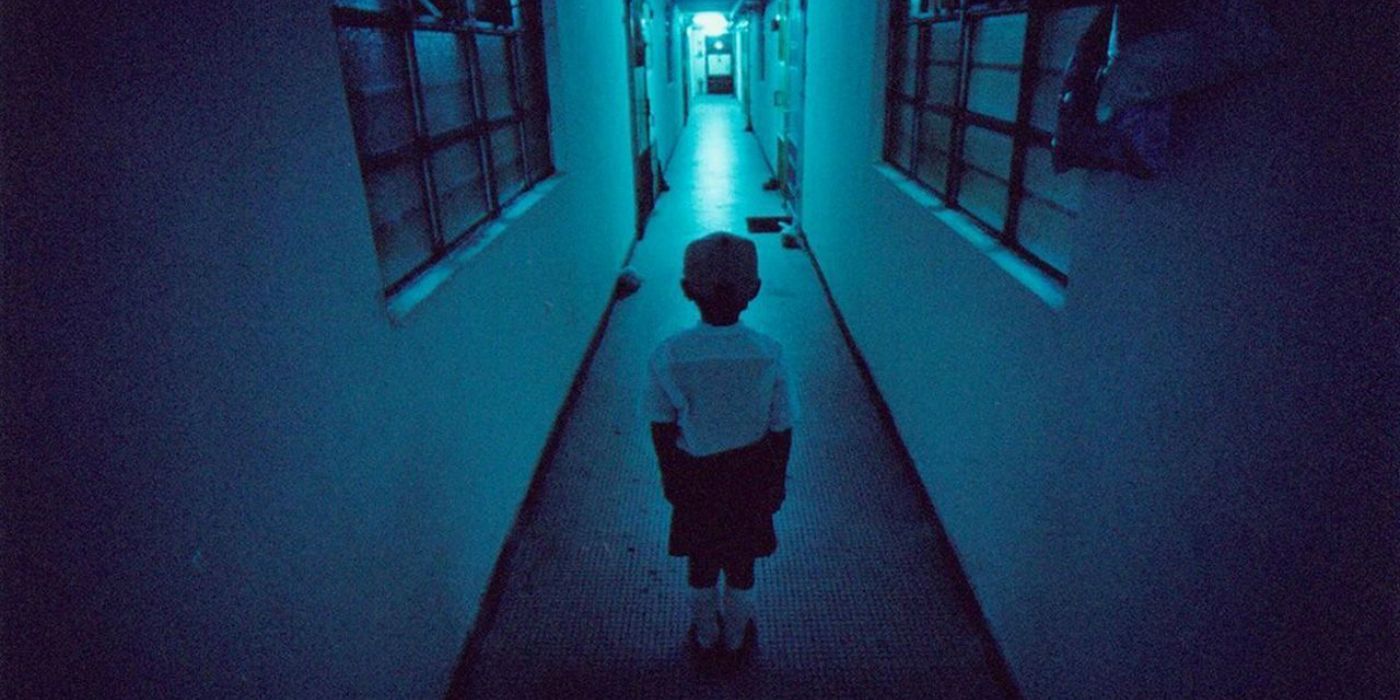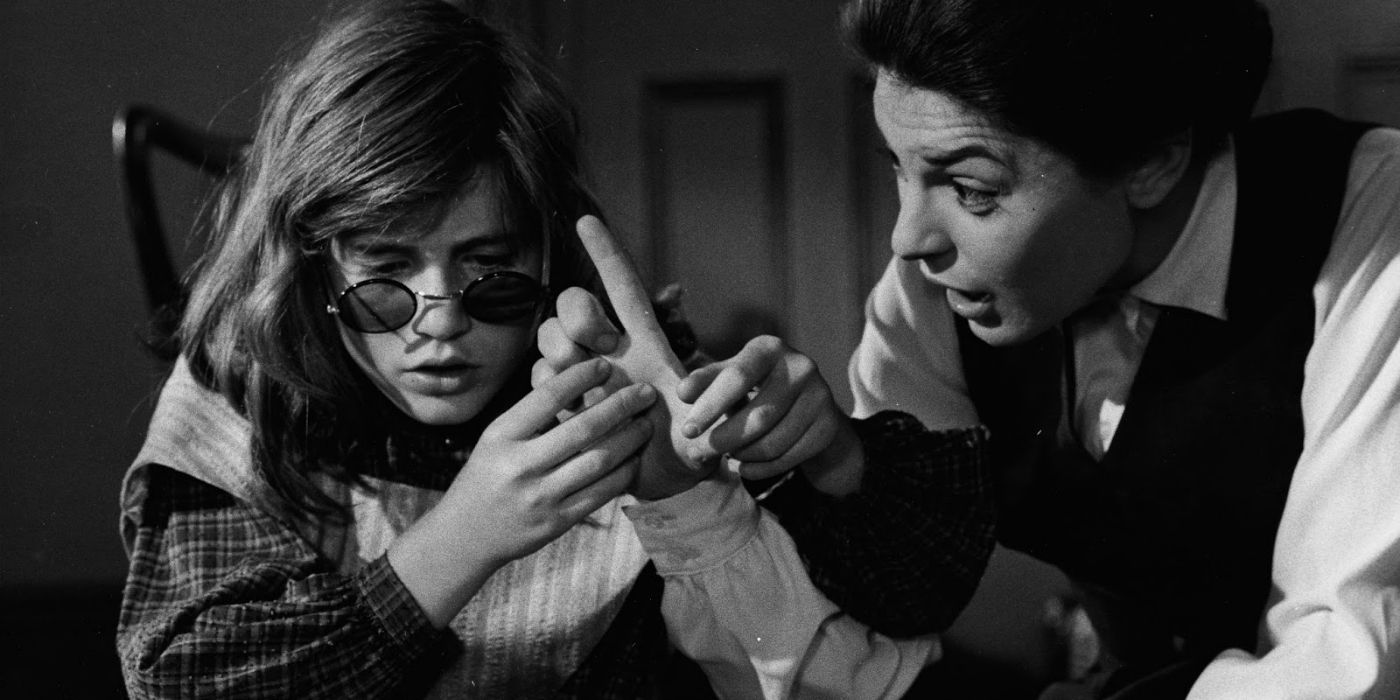The way that movies have depicted disabilities of all sorts ranges from spot-on to downright offensive. Blindness in particular has been a fairly free-game disability to portray in an offensive manner without any repercussions or backlash. But why? The daily struggles to get by in a world that doesn't accommodate for blind people are incredibly difficult. So why are the blind portrayed so comically and inaccurately in films? Luckily, there are a handful of really good movies out there that depict blindness in a way that doesn't mock or downplay the struggles of the visually impaired.
We’re looking for things like accurate (or at the very least positive) portrayals of blind people, films that don’t mock their blind characters or perpetuate harmful stereotypes, and of course overall entertainment value as well as an engaging plot. There are definitely a few fantasy and horror films that depict blindness with some pretty unrealistic plots, but those films also portray blind people as strong and capable.
There’s a few spoilers ahead, so tread with caution!
Check out these 15 Movies That Depict Blindness.
15. Ray (2004)
Biographical films are always embellished and gritty dramatizations of true events. While Ray incorporated a few events and characters that were fictional, the film is still one of those rare biopics that is not only entertaining and beautifully written, but also intimately close to the truth.
Ray follows the life of Ray Charles, the beloved, talented real-life songwriter and composer behind "I Got a Woman" and "I Can't Stop Loving You". Charles' fans and peers nicknamed him "The Genius". He suffered from glaucoma in his early childhood and by the age of seven was completely blind. In the film, Jamie Foxx plays Ray Charles and explores his rise to fame.
This film deserves a spot on this list because it showed an accurate portrayal of the oppressive circumstances many blind people face, as well as realistic moments of beauty and joy. Ray Charles was quite a human being indeed and Jamie Foxx portrayed him exquisitely.
14. Ichi (2008)
In this Japanese chambara comedic drama film, we meet a young blind woman named Ichi (Haruka Ayase) who is living in a home for goze (blind women). Ichi is enigmatic and without a doubt the toughest character in the film.
Ichi was refreshing for many reasons. Much of the film’s cinematography, dialogue, and score felt like a direct-from-anime adaptation, as did the body language of most of the characters. The film was sort of campy and sort of artistic. Ichi was in no way a damsel in distress and there was very little focus on her visual impairment as a weakness. More so, the film portrayed Ichi’s life as something understandably difficult, but also deeply rooted in honor and a relatable humanity. She knew nothing of the blind man who raised her and didn’t even know if he was her father, and that tragedy drove her to find out the truth. Her journey was a sad one, but it wasn't riddled with fear. On the contrary, Ichi’s bravery and stoic nature made her a unique female character and an even more unique blind character in cinema.
13. Julia's Eyes (2010)
If you choose to watch this supernatural horror film from Spain for Belén Rueda's strangely soothing voice alone, it will be worth it. Luckily, Julia's Eyes is also an incredibly engaging and deeply terrifying horror film that will keep you guessing until the very end.
In the film, a woman named Julia (Rueda) is dealing with the suspicious death of her twin sister Sara. Both women were born with a disorder that causes their eyesight to deteriorate over time.
Julia is obviously suspicious of her sister's untimely death and conducts an investigation of her own. What ensues is an increasingly uneasy buildup in which Julia's eyesight gets worse and gets better all while being tangled up in a thrilling conspiracy.
Guillermo del Toro produced this gem of a thriller and we're glad that he did. Sometimes really great films need a little push from a big name, and luckily Julia's Eyes got a chance to go international. This film is awesome because our leading lady was far from a weak person, not despite her visual impairment but because of it. The plot is also very unique.
12. Blind (2011)
This Korean crime thriller won a few awards and honors in Korea in 2011, including Best Actress and Best Screenplay. The gesture is well deserved, for sure.
The lead character in this thrilling, complex crime drama is Soo-ah, a young woman who was injured in a car wreck that left her blind and her adopted brother dead. Soo-ah was initially a promising police academy student with dreams of becoming a detective, but after her injury she decided to leave her police career behind. The focus of the film isn't entirely wrapped around Soo-ah, but rather the missing persons hit-and-run case that she may have inadvertently been involved in. Soo-ah works with detectives to find the perpetrator of the crimes and becomes entangled in a dark, frightening mystery.
Blind was a great film mostly for its ending. After the events of the film, Soo-ah decides to enroll in the police academy again. Her character was uplifting because she proved that people with visual impairment and other disabilities can be more than capable of doing difficult jobs. Her ability to survive, think quickly, and endure the cat-and-mouse game throughout Blind made her an inspiring blind character.
11. Book of Eli (2010)
At the risk of spoiling the "twist" ending, we're going to have to talk about Book of Eli if we're going to talk about awesome movies that portray blind people.
Book of Eli explores a post-nuclear apocalyptic world overrun by desperate bandits and violent gangs. Eli, played by Denzel Washington, is a traveller making his way towards the west coast of the former United States. Eli is apparently in possession of a particular pre-apocalypse book that could grant power to anyone who wants to use it to control a large amount of people. Mob boss Carnegie (Gary Oldman) wants that book and will do anything to get it from Eli.
Eli was a great blind character because he was far from helpless and was without a doubt the hero of the film. The "blind" reveal could be spotted from a mile away (Who wears sunglasses 24/7 for fun... other than Bono?), but Book of Eli is definitely worth watching for the additional twist and the thoughtful themes that make this movie vividly entertaining. Plus, Tom Waits is in it.
10. Butterflies Are Free (1972)
"It's the greatest bed I've ever seen... and I've seen a lot of beds!" Oh, Goldie.
Butterflies Are Free follows the story of a young blind man named Don (Edward Albert) who moves into his own apartment despite the overprotective pushiness of his mother. While living in the apartment complex he befriends his neighbor, a quirky young woman named Jill (Goldie Hawn).
Butterflies Are Free is a great film that depicts blindness because Don was unafraid to live his life on his own terms despite being told by his mother than he never would be able to. His relationship with Jill was also refreshing; Jill was a flaky mess while Don was truly the brave, responsible, and enduring one. This film was quite campy and almost made audiences feel like voyeurs because of how Jill's character was sexualized around a man who couldn't see her. But the heart of the movie is sweet and it is definitely entertaining. There's a ton of quotable moments too. "Are you a homosexual?" "No, just blind."
9. At First Sight (1999)
Oliver Sacks was a famous British neurologist behind many incredible boundary-pushing essays and books. The film At First Sight was based on the essay "To See and Not See" from Sacks' book An Anthropologist on Mars. The film was also inspired by the life of Shirl Jennings, one of the few people in the world to regain sight after a lifetime of blindness.
Virgil (Val Kilmer in his hey-day) is our blind protagonist in At First Sight who begins a whirlwind romance with a woman named Amy. Throughout the film we learn about the oppressive circumstances Virgil has been forced to endure, including being abandoned by his father and being confined by his overprotective sister. When a promising surgery returns Virgil's eyesight, he has trouble adapting to living with a foreign sense-- far from the tear-jerking "blind but now I see" trope we typically see in movies involving blind people. Virgil's surgery doesn't "fix" him and his vision begins to deteriorate again. Virgil spent the whole movie dealing with people who wanted to cure his blindness instead of loving him the way he was, and the film succeeded in portraying that as an ugly way to be an ally.
8. Love and Honor (2006)
Originally known as Bushi no ichibun, this Japanese period drama is part of Yoji Yamada's samurai trilogy that includes Twilight Samurai and The Hidden Blade.
Shinnojo is a samurai who lives with his loyal and loving wife Kayo. He works as a food taster for an affluent lord and dreams of running a kendo school for low-caste children. After being poisoned on the job, Shinnojo falls ill and eventually goes blind from his illness. Kayo, fearful for the couple's future, is offered help by an affluent chief duty officer with a hefty price-- one women at the time often had to pay. Shinnojo fights to preserve his wife's honor and prove himself despite his disability.
Love and Honor is an incredibly emotional account of being disabled in an honor-based society. The ending is beautiful, though bittersweet. Shinnojo was an inspiring visually impaired character who was very human and bitter about his disability initially, but eventually worked with what his body had to offer to save his family.
7. Blindsight (2006)
One of the few documentaries on this list, Blindsight earns its spot because of the film's intimate, truthful, and convicting look at how blind people, as well as disabled people in general, face oppression in their daily lives.
Six Tibetan teenagers, all of whom are blind, embark on a tumultuous journey up the 23,000 foot Lhakpa Ri mountain. Accompanied by their educators, including renowned blind social worker Sabriye Tenberken and famous blind mountain climber Erik Weihenmayer, the group face challenges and imminent dangers on their journey up the mountain. More significantly, the children face equally serious problems in their family lives. Many of them are feared by their parents, hated by their communities, and shamed by devout Buddhists as cursed souls and sinners.
This documentary is straightforward and relatively unbiased-- the children tell their own story and shine brightly. Blindsight won several awards, all of which were well deserved. If you haven't seen this moving documentary, you should check it out.
6. The Masseurs and a Woman (1938)
If you’re in the mood for vintage cinema, Anma to Onna (also known as The Masseurs and a Woman) would be a good film to check out.
This black and white drama from Japan follows the story of Toku, a blind masseur. At the beginning of the film, Toku and his friend Fuku travel cheerfully down a mountain path toward a village of inns to find work. Toku meets a woman named Michiko, who he immediately recognizes as being from Tokyo by her fragrance alone. The film becomes increasingly sadder as it grows apparent how difficult the cheerful Toku's life really is, but it serves its purpose-- life can be very difficult if you are blind because of societal rejection alone. Toku's character was kind and sweet, but the way people see him and treat him is disheartening. Although sad, the film is gentle as well as visually beautiful. Anma to Onna has a nice old-timey blend of comedy and drama that still holds entertainment value to people of all ages. The film is very accessible and definitely worth watching once.
5. Proof (1991)
This awesome Australian comedic drama features a young Hugo Weaving and Russell Crowe. In Proof, we meet a blind photographer named Martin (Weaving) who struggles with trust issues stemming from his well-meaning mother embellishing what she could see to him. This little nuance drastically affects Martin's life, causing him to lead a life of resentful bitter feelings towards sighted people and a deep hatred of being pitied. He also seems to enjoy rebuking his housekeeper's advances as well, and she takes her unrequited love frustration out on him by rearranging his furniture regularly. Eventually, Martin meets Andy (Crowe) and the two become friends.
Proof is a well-made, funny, and heart-wrenching depiction of how oppressed people become traumatized by the aggressions they face on a daily basis, sometimes to the point that they feel no one can be trusted. The ending is a beautiful one-- the cherry on top of a fantastic film.
4. A Patch of Blue (1965)
In this American drama from director Guy Green, a young black man named Gordon (Sidney Poitier) and a blind white woman named Selina (Elizabeth Hartman) fall in love in racially divided America. The film explores racism and ableism from the perspective of "love is blind"-- not necessarily as a flowery dismissive mark-missing narrative, but rather as a term that is unrealistic and not constructive. Selina isn't painted as a pious white woman and the story doesn't end all fuzzy and warm. Much of Selina's story focuses on the personal difficult circumstances she faces as a disabled woman and the prospect of her relationship with Gordon growing into marriage is doubted until the very end. Her own family takes advantage of her, she is a victim of sexual assault, and she has never received an education. Gordon endures the abuse he receives as a black man in segregated white America and is realistic about his relationship with Selina-- it probably won't happen. If it does, he could get killed.
A Patch of Blue is one of Sidney Poitier's most well-loved and memorable films, and also helped launch his career.
3. Life on a String (1991)
This dramatic story about a blind sanxian player and his apprentice is based on a novel by Shi Tiesheng. The sanxian player, Old Master, was told by his own master in his adolescence that once he has broken a thousand strings on his instrument, a secret compartment will open and reveal the cure for his blindness. Sixty years later, that thousandth string has broken. It might have been quicker if he just smashed the sanxian open, but then where is the drama?
Life on a String is quiet and human, heartfelt and believable. The score for the film is unbelievable, a testament to old and modern Chinese voices and instruments. While it is a powerful depiction of visual impairment, it is also an all-around fantastic film with themes of compassion and empathy. The final minutes of the film show Old Master singing to a crowd about his long life filled with love, joy, heartbreak, and disappointment. The song is probably one of the most beautiful pieces ever to come from a film, period.
2. The Eye (2002)
Also known as Gin Gwai, this Singaporean-Hong Kong horror film was quite unique for its time. It spawned several unnecessary sequels as well as an Indian remake and a Western remake starring Jessica Alba in 2008. Imitation is the sincerest form of flattery, it seems!
In the film, a talented young blind violinist named Mun has the opportunity to undergo a cornea transplant after finally receiving a donor. Things go wrong pretty fast after Mun recovers from the surgery. While she is able to finally see, she also starts seeing disturbing figures that somehow predict deaths. She sees one such figure hovering over a patient in the hospital, and the next day the patient is pronounced dead.
Her psychologist believes she is simply adapting to her new sense, but he couldn't be more wrong. The source of Mun's visions come directly from the mysterious donor who supplied her new eyes.
Not much of the film focused on Mun's blindness, but the film was quite entertaining and spooky. Try the original film first before delving into the American remake-- as usual, the original is often better.
1. The Miracle Worker (1962)
This biographical film about the lives of Helen Keller and Anne Sullivan is often considered one of the greatest films of the '60s. While historically accurate for the most part and an intimate look into the lives of two of the most famous blind figures in history, this drama was not without its controversial and problematic moments. Racist stereotypes and themes of child abuse were shown in the film. Regardless, the film was an instant critical success and won two Academy Awards for Best Actress and Best Supporting Actress.
In The Miracle Worker, a young blind and deaf Helen Keller is deeply frustrated by her disability and begins to violently lash out at those around her. Desperate to help their child, her parents contact the Perkins School for the Blind. Anne Sullivan is sent to tutor Keller and help her to communicate.
At the very least, The Miracle Worker was a gritty and powerful depiction of how poorly disabled children are often treated by their families, and how community can change the quality of life that a disabled child lives.

